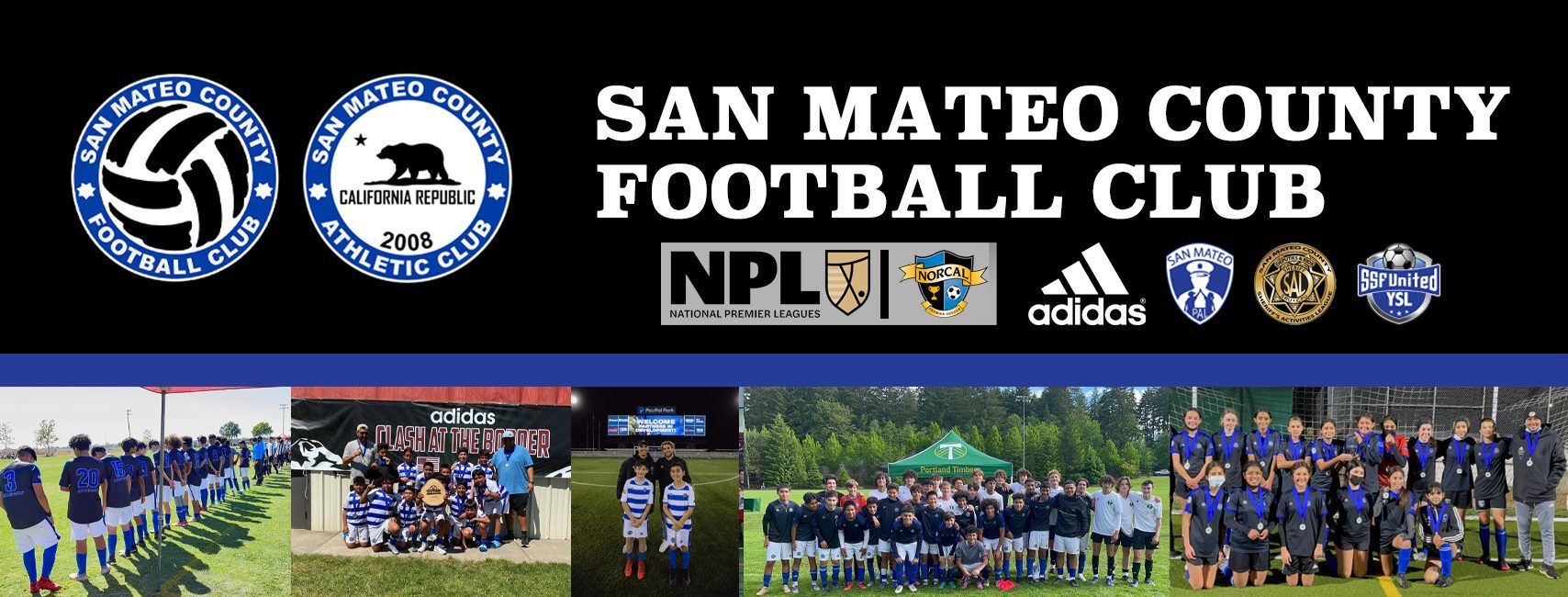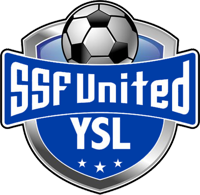
South San Francisco United Youth Soccer League works in collaboration with San Mateo County Football Club
to provide a high quality, competitive program. For more information on SMC FC and tryouts, please go to the SMCFC website.
WORKING TOGETHER
Frequently Asked Questions
01
How do parents know when their child is ready to move into SMC FC competitive program?
- The player has a high interest level in soccer and practices on his or her own or with friends.
- The player is the best or one of the best on his or her team, and starts to seem bored with the recreational competition level.
- The player sees higher-level players and wants to be like them.
- The player is mature enough to commit to more frequent practices and more strenuous training.
- The player likes competition.
The rule of thumb is to let your child guide you. Don’t push him or her into trying out for a competitive team just because you want it. Some players are ready at age 8 and some aren’t ready to move up until age 13 or 14. Talk to your child and gauge his or her feelings about tryouts. There is always a risk that the player won’t make the team; is the response, “If I don’t make the team, I’ll quit” or is it, “I like to play soccer so I’ll find another team if I don’t make it”? Find out what your child’s commitment level is. The child should also understand that it is he or she alone who is trying out. The best buddy may not make the team. In addition, sometimes a whole team or a significant part of a team wants to move up together. Some players may not be ready but move up because their friends are doing it. They would not have tried out for the competitive team otherwise. Sometimes this situation results in an unproductive and frustrating experience for the players and the parents.
02
What will be asked of the player and the parents when the child is chosen for a comp or select team?
- Regular attendance is expected at all practices and games. If a player cannot attend, he or she or the parents must notify the coach as soon as possible. Players need to arrive ON TIME.
- If playing multiple sports, the player should prioritize soccer above other sports when conflicts occur, especially in fall, soccer’s primary season.
- Proper attire. Higher level soccer players must dress accordingly.
- Responsibility for equipment and uniforms. Players should learn to take care of their equipment and uniforms and bring them when required.
- Financial responsibility. Parents should budget the costs of competitive soccer and prepare to take care of expenses in a timely manner. Fee information here. If you are in need help with fees, financial aid policy and information here.
- Maintain standards of behavior. Players and parents must control their actions and words. The level of play in competitive soccer becomes more physical as players move through the age groups and skill levels. Players must learn to keep their play and their emotions under control on the field. Parents must remain quiet and allow the coaches to address any issues with players and referees.
- Help in team organization and other tasks. Running a competitive team is more complex than a recreational team. Many teams break tasks down across multiple parent team managers. It is usually expected that all parents assist in some way.
PLEASE NOTE: IF THESE COMMITMENTS CANNOT BE MET, THE PLAYER SHOULD CONSIDER STAYING AT THE RECREATIONAL LEVEL.








